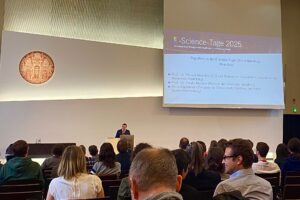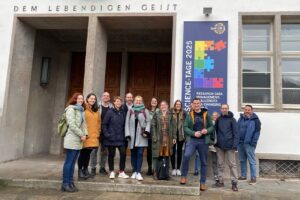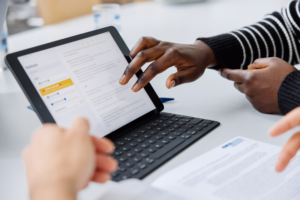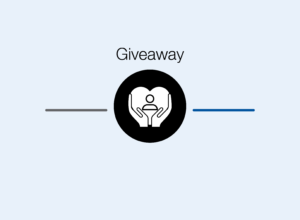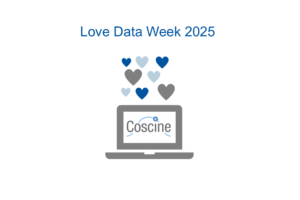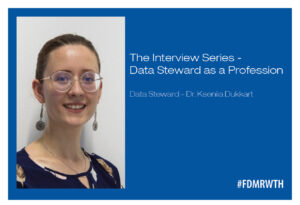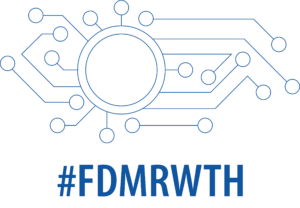Kategorie: ‘Allgemein’
Meeting of the RDM Network in March 2025 – Realignment of the RDM network and Highlights of the E-Science Days
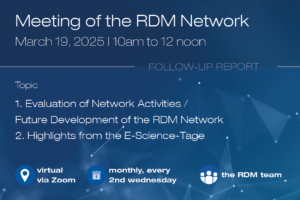
Source: Own illustration; Freepik
In this report, we look back on the last Meeting of the RDM Network on March 19, 2025: Learn more about the RDM network, its vision and the future development of the RDM network meetings at RWTH Aachen University. We also share the highlights of our Data Stewards and network members that they experienced during the E-Science Days 2025 in Heidelberg.
E-Science-Days 2025: Concluding Impulses
The third and final day of the E-Science Days 2025 kicked off with an inspiring keynote by Prof. Dr. Niklas Boers on the topic of “Data-driven modeling of the Earth system”. The participants gained a comprehensive insight into data-driven modeling approaches for researching the Earth system. The keynote was moderated by Oliver Kohl-Frey.
E-Science-Days 2025: Coscine in Focus
After the first day of the E-Science Days 2025 offered exciting insights into various aspects of research data management, the second day focussed on practical solutions, sustainable storage strategies and agile development processes. The day began with a keynote speech by Susanna Weber and then offered a varied programme of specialist presentations and discussions on current challenges and innovative developments in RDM.
RDM and Good Scientific Practice: An Inseparable Connection
Research data is the backbone of every scientific endeavor. However, the collection, documentation, and publication of research data is only useful if it adheres to the principles of Good Scientific Practice (GSP). These principles ensure scientific integrity and the quality of research. A central component of GSP is the proper handling of research data, which plays an important role in research data management (RDM).
And What Kind of RDM Personality Do You Have?
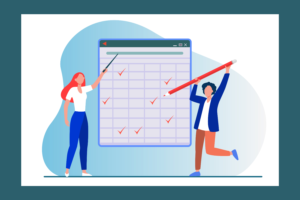
Source: Freepik
The world of research data management (RDM) is as diverse as the people who work with it every day. Every approach, every method and every strategy reflects not only the requirements of research, but also the personalities behind it. Have you ever wondered what role you play in this dynamic world? With the humorously designed RDM personality test from FDM-ndsHAW you can find out exactly that!
RWTHtransparent 2025 – A Review
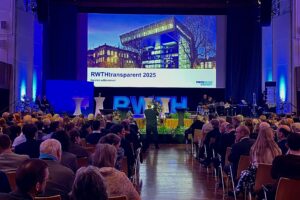
Source: Own illustration
The annual RWTHtransparent took place at the start of the year – an event at which RWTH Aachen University provides insights into its developments, celebrates the successes of the past year and presents an outlook on future projects. This year, the event was organised as an entertaining stage show that put research, teaching and university administration centre stage in an innovative way. Following the stage programme, participants were able to explore the exhibitions of current projects at RWTH and experience the diversity of the university.
Data Stewards at RWTH Aachen – Interview With Kseniia Dukkart
Today, we would like to follow up on the series “What does a data steward actually do?” with a new interview under the title “Data Stewards at RWTH Aachen – Interview With […]”. You can find the previous interviews on the RDM blog.
The concept of data stewards is still abstract for many people. Therefore, it is best to show their specific work so that you, as readers of the RDM blog, can get a better idea of what they do. Dr. Kseniia Dukkart is available for today’s interview. We hope you enjoy reading it.



